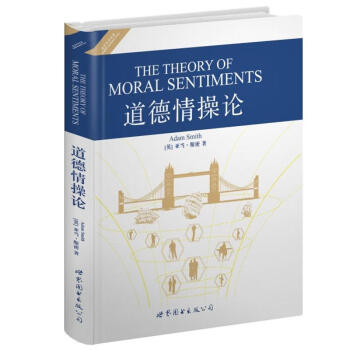

具体描述
编辑推荐
在中国现代化的进程中,西方哲学社会科学始终是最重要的思想资源。然而,一个令人遗憾的事实是,自19 世纪末20 世纪初“西学东渐”起,国人对于西学的了解,基本上是凭借零星的翻译和介绍,认真地去读原著的人少之又少。这些中译本,囿于译者的眼光和水平,往往与原著出入颇大。因此,国人谈论西学的情景,很像是瞎子摸象,虽然各执一词,却皆不得要领。
当然,100年间,还是出现了一批学贯中西的学者,但其中肯花工夫于译业的太少。许多年积累下来,我们在这个领域拥有的优质中译本依然十分有限。而且,再好的译本,毕竟与原著隔了一层。倘若我们的学术界始终主要依靠中译本去了解和研究西学,我们的西学水平就永远不能摆脱可怜的境况。
好在现在有了改变这种境况的条件。在当今全球化时代,随着国门进一步开放,中外交流日渐增多,人们普遍重视英语学习,国人中尤其年轻人中具备阅读英文原著能力的人越来越多了。在这种形势下,本丛书应运而生。编辑者的计划是,选择西方哲学、人文学科、社会科学领域的最基本的英文经典原著,分批陆续出版,为有志者提供价廉的版本和阅读的便利。我赞赏这样的善举,并且相信,这也是为学术界做的一件益事。
周国平
2010年2月24日
内容简介
《世界名著典藏系列:道德情操论(英文全本)》是亚当·斯密的伦理学著作,他一生中共修订过六次。斯密从人类的情感和同情心出发,讨论了善恶、美丑、正义、责任等一系列概念,进而揭示出人类社会赖以维系、和谐发展的秘密。
在《世界名著典藏系列:道德情操论(英文全本)》中,斯密继承了以《沉思录》为代表的斯多葛学派的道德哲学思想,把“内心平静”而不是“物质享乐”看作人生幸福的重要标志,将人性中利他和利己这两种本性有机地结合在一起,为之后出版的《国富论》奠定了道德哲学的基础。《道德情操论》相比《?富论》给西方世界带来的影响更为深远,它对于促进人类福利这一更大的社会目的起到了更为基本的作用,是市场经济良性运行不可或缺的“圣经”,堪称西方世界的《论语》。
目录
1 Part I1.1 Of the Sense of Propriety
1.1.1 Of Sympathy
1.1.2 Of the Pleasure of mutual Sympathy
1.1.3 Of the Manner in which we judge of the Propriety or Im-
propriety of the Affections of other Men, by their concord
or dissonance with out own
1.1.4 The same Subject continued
1.1.5 Of the amiable and respectable Virtues
1.2 Of the Degrees of the different Passions which are consistent with Propriety
1.2.1 Of the Passions which take their origin from the Body
1.2.2 Of those Passions which take their origin from a partic-ular turn or habit of the Imagination
1.2.3 Of the Unsocial Passions
1.2.4 Of the Social Passions
1.2.5 Of the Selfish Passions
1.3 Of the Effects of Prosperity and Adversity upon the Judgment
of Mankind with regard to the Propriety of Action; and why it
is more easy to obtain their Approbation in the one state than
in the other
1.3.1 That though our sympathy with Sorrow is generally a
more lively sensation than our sympathy with Joy, it
commonly falls much more short of the violence of what
is naturally felt by the person principally concerned
1.3.2 Of the origin of Ambition, and of the distinction of Ranks
1.3.3 Of the corruption of our Moral Sentiments, which is oc-
casioned by this disposition to admire the rich and the
great, and to despise or neglect persons of poor and mean
condition
2 Part II
2.1 Of the Sense of Merit and Demerit
2.1.1 That whatever appears to be the proper object of grat-
itude, appears to deserve reward; and that, in the same
manner, whatever appears to be the proper object of resentment appears to deserve punishment
2.1.2 Of the proper Objects of Gratitude and Resentment
2.1.3 That where there is no approbation of the conduct of the
person who confers the benefit, there is little sympathy,
with the gratitude of him who receives it; and that, on the
contrary, where there is no disapprobation of the motives
of the person who does the mischief, there is no sort of
sympathy with the resentment of him who suffers it
2.1.4 Recapitulation of the foregoing Chapters
2.1.5 The Analysis of the Sense of Merit and Demerit
2.2 Of Justice and Beneficence
2.2.1 Comparison of those two Virtues
2.2.2. Of the sense of Justice, of Remorse, and of the conscious-
ness of Merit
2.2.3 Of the utility of this constitution of Nature
2.3 Of the Influence of Fortune upon the Sentiments of Mankind,
with regard to the Merit or Demerit of Actions
2.3.1 Of the Causes of this Influence of Fortune
2.3.2 Of the Extent of this Influence of Fortune
2.3.3 Of the final cause of this Irregularity of Sentiments
3 Part III
3.1 Of the Principle of Self-approbation and of Self-disapprobation
3.2 Of the love of Praise, and of that of Praise-worthiness; and of the dread of Blame,
and of that of Blame-worthiness
3.3 Of the Influences and Authority of Conscience
3.4 Of the Nature of Self-deceit, and of the Origin and Use of general Rules
3.5 Of the Influence and Authority of the general Rules of Morality,
and that they are justly regarded as the Laws of the Deity
3.6 In what cases the Sense of Duty ought to be the sole Principle
of our Conduct; and in what cases it ought to concur with other
Motives
4 Part IV
4.1 Of the Beauty which the Appearance of Utility bestows upon
all the Productions of Art, and of the extensive Influence of this
Species of Beauty
4.2 Of the Beauty which the Appearance of Utility bestows upon
the Characters and Actions of Men; and how far the Perception
of this Beauty may be regarded as one of the original Principles
of Approbation
5 Part V
5.1 Of the Influence of Custom and Fashion upon our notions of
Beauty and Deformity
5.2 Of the Influence of Custom and Fashion upon Moral Sentiments
6 Part VI
6.1 Of the Character of the Individual, so far as it affects his own
Happiness; or of Prudence
6.2 Of the Character of the Individual, so far as it can affect the
Happiness of other People
6.2.1 Of the Order in which Individuals are recommended by
Nature to our care and attention
6.2.2 Of the Order in which Societies are by nature recommended to our Beneficence
6.2.3 Of Universal Benevolence
6.3 Of Self-command
7 Part VII
7.1 Of the Questions which ought to be examined in a Theory of
Moral Sentiments
7.2 Of the different Accounts which have been given of the Nature of Virtue
7.2.1 Of those Systems which make Virtue consist in Propriety
7.2.2 Of those Systems which make Virtue consist in Prudence
7.2.3 Of those Systems which make Virtue consist in Benevolence
7.2.4 Of Licentious Systems
7.3 Of the Different Systems which have been Formed Concerning
the Principle of Approbation
7.3.1 Of those Systems which deduce the Principle of Approbation from Self-love
7.3.2 Of those Systems which make Reason the Principle of Approbation
7.3.3 Of those Systems which make Sentiment the Principle of Approbation
7.4 Of the Manner in which different Authors have treated of the
practical Rules of Morality
精彩书摘
Mankind, at the same time, have a very strong sense of the injuries that are done to another. The villain, in a tragedy or romance, is as much the object of our indignation, as the hero is that of our sympathy and affection.We detest Iago as much as we esteem Othello; and delight as much in the punishment of the one, as we are grieved at the distress of the other. But though mankind have so strong a fellow-feeling with the injuries that are done to their brethren, they do not always resent them the more that the sufferer appears to resent them. Upon most occasions, the greater his patience, his mildness, his humanity, provided it does not appear that he wants spirit, or that fear was the motive of his forbearance, the higher their resentment against the person who injured him. The amiableness of the character exasperates their sense of the atrocity of the injury. These passions, however, are regarded as necessary parts of the character of human nature. A person becomes contemptible who tamely sits still, and submits to insults, without attempting either to repel or to revenge them. We cannot enter into his indifference and insensibility. we call his behaviour mean-spiritedness, and are as really provoked by it as by the insolence of his adversary.Even the mob are enraged to see any man submit patiently to affronts and ill usage. They desire to see this insolence resented, and resented by the person who suffers from it. They cry to him with fury, to defend, or to revenge himself.If his indignation rouses at last, they heartily applaud, and sympathize with it. It enlivens their own indignation against his enemy, whom they rejoice to see him attack in his turn, and are as really gratified by his revenge, provided it is not immoderate, as if the injury had been done to themselves. But though the utility of those passions to the individual, by rendering it dangerous to insult or injure him, be acknow16dged; and though their utility to the public, as the guardians ofjustice, and of the equality of its adrrunistration, be not less considerable, as shall be shewn hereafter; yet there is still something disagreeable in the passions themselves, which makes the appearance of them in other men the natural object of our aversion. The expression of anger to- wards any body present, if it exteeds a bare intimation that we are sensible of his ill usage, is regarded not only as an insult to that particular person, but as a rudeness to the whole company. Respect for them ought to have restrained us from giving way to so boisterous and offensive an emotion. It is the remote effccts of these passions which are agreeable; the immediate effects are mischief to the person against whom they are directed. But it is the immediate, and not the remote effects of objects which render them agreeable or disagreeable to the imagination. A prison is certainly more useful to the public than a palace; and the person who founds the one is generally directed by a much juster spirit of patriotism, than he who builds the other. But the immediate effects of a prison, the confinement of the wretches shut up in it, are disagreeable; and the imagination either does not take time to trace out the remote ones, or sees them at too great a distance to be much affected by them. A prison, therefore, will always be a disagreeable object; and the fitter it is for the purpose for which it was intended, it will be the more so. A palace, on the contrary, will always be agreeable; yet its remote effects may often be inconvenient to the public. It may serve to promote luxury, and set the example of the dissolution of manners. Its immediate effects, however, the conveniency, the pleasure, and the gaiety of the people who live in it, being all agreeable, and suggesting to the imagination a thousand agreeable ideas, that faculty generally rests upon them, and seldom goes further in tracing its more distant consequences. Tro- phies of the instruments of music or of agriculture, imitated in painting or instucco, make a common and an agreeable ornament of our halls and dining- rooms. A trophy of the same kind, composed of the instruments of surgery, of dissecting and amputation-knives, of saws for cutting the bones, of trepan-ning instruments, etc. would be absurd and shocking. Instruments of surgery, however, are always more finely polished, and generally more nicely adapted to the purposes for which they are intended, than instruments of agriculture. The remote effects of them too, the health of the patient, is agreeable; yet as the immediate effect of them is pain and suffering, the sight of'them always displeases us. Instruments of war are agreeable, though their immediate effect may seem to be in the same manner pain and suffering. But then it is the pain and suffering of our enemies, with whom we have no sympathy. With regard to us, they are immediately connected with the agreeable ideas of courage, vic-tory, and honour. They are themselves, therefore, supposed to make one of the noblest parts of dress, and the imitation of them one of the finest ornaments of architecture. It is the same case with the qualities of the mind. The an- cient stoics were of opinion, that as the world was governed by the all-ruling providence of a wise, powerful, and good God, every single event ought to be regarded, as making a necessary part of the plan of the universe, and as tending to promote the general order and happiness of the whole: that the vices and follies of mankind, therefore, made as necessary a part of this plan as their wisdom or their virtue; and by that eternal art which educes good from ill, were made to tend equally to the prosperity and perfection of the great system of nature. No speculation of this kind, however, how deeply soever it might be rooted in the mind, could diminish our natural abhorrence for vice, whose immediate effects are so destructive, and whose remote ones are too distant to be traced by the imagination.
……
前言/序言
用户评价
这套“世界名著典藏系列”的封面设计实在让人眼前一亮,那种复古的厚重感,仿佛一下子把我拉回了那些经典文学诞生的时代。我特别喜欢那种精装书特有的仪式感,翻开扉页的时候,纸张的触感和淡淡的油墨香气,都让人觉得手中的不仅仅是一本书,而是一份珍贵的历史遗产。书脊的设计也很有心思,一套摆在书架上,那种庄严和典雅的气质立刻就凸显出来了,绝对是爱书人书柜里的“镇宅之宝”。从装帧的质感上来说,出版社在细节的处理上看得出是用心了的,不是那种随随便便、一看就是快消品的印刷品。虽然我还没深入阅读内文,但仅仅是把玩这实体书的过程,就已经是一种享受了。它成功地营造了一种“值得珍藏”的氛围,让人对即将开始的阅读之旅充满了期待和敬畏。这种对经典文本的尊重,从外在的包装上就可见一斑,这对于我们这些追求阅读体验的读者来说,是至关重要的第一印象。
评分这套丛书的装帧细节中透露出的那种低调的奢华感,让我联想到了那些经典文学在不同语言和文化中流传的故事。我猜想,这套书的译者团队一定汇聚了各个领域的顶尖学者,因为要准确传达原著的精髓和时代背景,绝非易事。好的翻译是连接不同文明的桥梁,它需要在忠实于原文的意义和重塑原文的韵味之间找到一个完美的平衡点。我非常关注译者的署名和他们的专业背景,因为这直接决定了我们能否真正领略到原著的“灵魂”。一个粗糙的翻译,再好的内容也会黯然失色。因此,我期待的是一种近乎完美的“二次创作”,它能让一个非母语的读者,也能感受到原作者在遣词造句上的匠心独运和思想的磅礴气势。这不仅是对文字的尊重,更是对历史和作者智慧的敬意。
评分从收藏的角度来看,这套书的统一性和完整性是吸引我的关键因素。我个人有收集全套系列作品的“怪癖”,因为只有集齐了,才能感受到创作者或编纂者试图构建的那个宏大叙事结构。这套“世界名著典藏系列”的命名本身就带有一种权威性和概括性,暗示了它旨在提供一个全面的、经过精心筛选的阅读清单。我希望能看到出版社在选材上保持高度的专业水准,确保每一部作品都是公认的、对人类文明进程产生过深远影响的典范之作。我更在乎的是,这套书的后续更新和扩充是否能够持续跟进,因为经典并非一成不变,对经典的解读和发现是与时俱进的。一个优秀的典藏系列,应当是活的,能够随着时代的变迁,不断补充和丰富其内涵。
评分当我浏览这套书的目录(假设我看到了其他卷目的介绍)时,我立刻被那种强烈的求知欲所牵引。我总觉得,现代社会的信息爆炸,反而让我们失去了对深度阅读的耐心和能力。我们习惯于碎片化的信息接收,却鲜少有时间沉浸于一篇结构严谨、逻辑缜密的鸿篇巨制之中。这套典藏系列,以其字数和厚度,无形中要求读者放慢脚步,重新拾起那种专注、持久的阅读习惯。对我来说,阅读这些宏大的作品,就像是进行一场智力上的马拉松训练,它锻炼的不仅是理解能力,更是专注力和毅力。我期待着通过这些经典的熏陶,能够重塑我处理复杂信息的能力,让我的思维框架更加坚实和立体。这种对心智的磨砺,远比单纯获取知识更有价值。
评分我最近在寻找一些能够拓展思维深度、提供更广阔世界观的读物,而这套典藏系列似乎就是为此而生的。我关注的焦点在于它所收录的那些横跨不同时代、不同文化背景的思想精华。我深信,要理解我们当下所处的复杂世界,就必须回溯到那些奠定现代文明基石的伟大思想家的论述中去汲取智慧。因此,我十分好奇这系列丛书中其他卷目是如何平衡不同流派的观点的,是偏向理性分析,还是更侧重人文关怀?好的名著集不仅是知识的罗列,更应该是一种思想的对话,能激发读者产生批判性思考。我希望这套书能提供一个平台,让我能与那些历史上的巨匠们进行一场跨越时空的深度交流,而不是仅仅被动地接受信息。阅读这些经典,对我而言,更像是一场精神上的远足,去探索人类智慧的边界和可能性。
评分还好吧还没有开始看 买了好多书
评分这书很经典。我看不懂的地方好多。
评分多读点西方著作,才能有更大视野
评分多读书,读好书,平心静气呀!这些经典著作上学时候读不懂,现在随着生活阅历的增长,应该多读读了。
评分印刷很紧凑,不过还好,拿来放着吧,久久又看
评分价格实惠。印刷质量很好。
评分商品还是极好的,下次还会来买~~
评分不错的,物流超快。书还未及看不错的,物流超快。书还未及看
评分书很不错,值得好评,纸张文字都不错
相关图书
本站所有内容均为互联网搜索引擎提供的公开搜索信息,本站不存储任何数据与内容,任何内容与数据均与本站无关,如有需要请联系相关搜索引擎包括但不限于百度,google,bing,sogou 等
© 2026 book.idnshop.cc All Rights Reserved. 静思书屋 版权所有

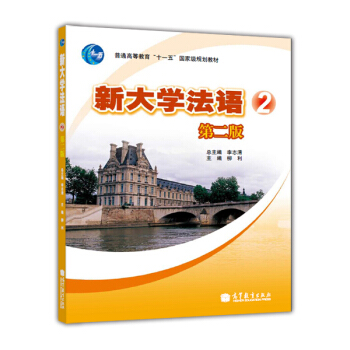



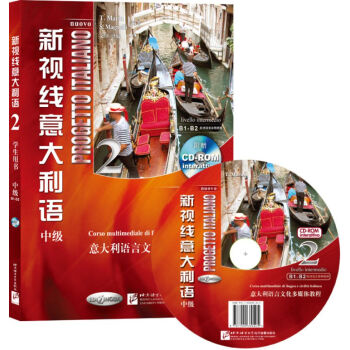


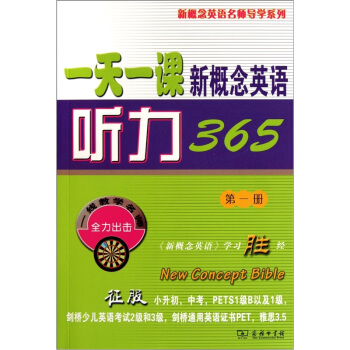
![体验英语少儿阅读文库 setD 小小文学(第6级)(适合11-13岁)(套装共6册+MP3) [11-13岁] pdf epub mobi 电子书 下载](https://pic.tinynews.org/10834336/53527ef1-11db-4ca9-9755-f1fb651d6de1.jpg)
![安妮花:自然拼读英语故事俱乐部1(可点读,每套9本绘本,1本学习指导,1张光盘) [3-6岁] pdf epub mobi 电子书 下载](https://pic.tinynews.org/11080277/rBEHZlBlBZAIAAAAAAFG-HGZKNcAABjSgBiUzEAAUcQ805.jpg)




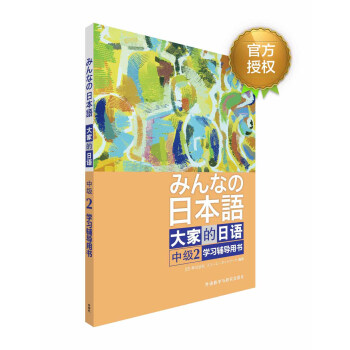


![新时代老年大学英语教程2 [UTA English] pdf epub mobi 电子书 下载](https://pic.tinynews.org/10034182/2742b711-ddec-424f-901d-071092dd3d4c.jpg)
![坎特维尔的幽灵:王尔德奇趣短篇小说选 [The Canterville Ghost and Other Stories] pdf epub mobi 电子书 下载](https://pic.tinynews.org/10035482/55e998dd-964e-4135-b092-d353e24122ac.jpg)
